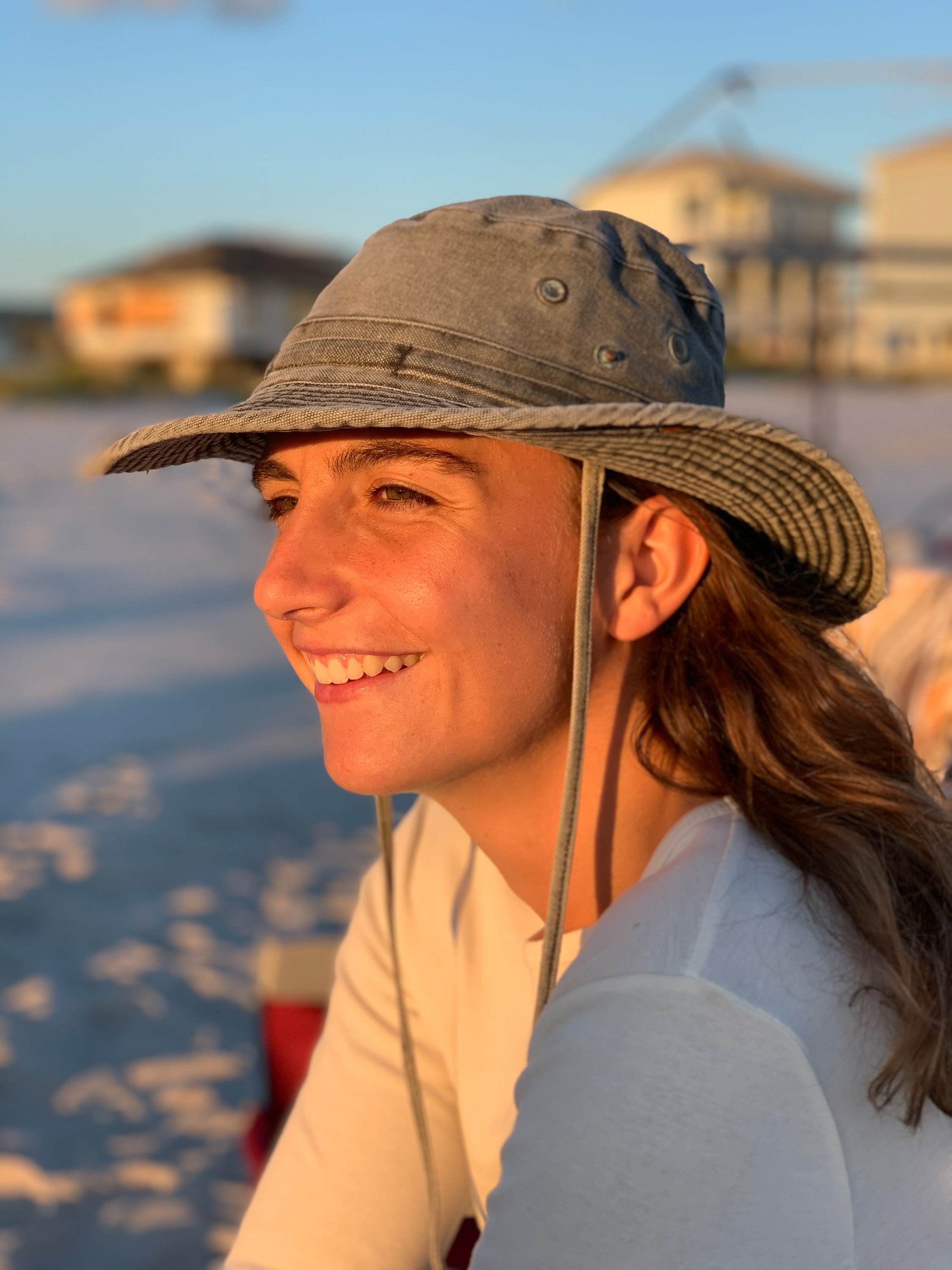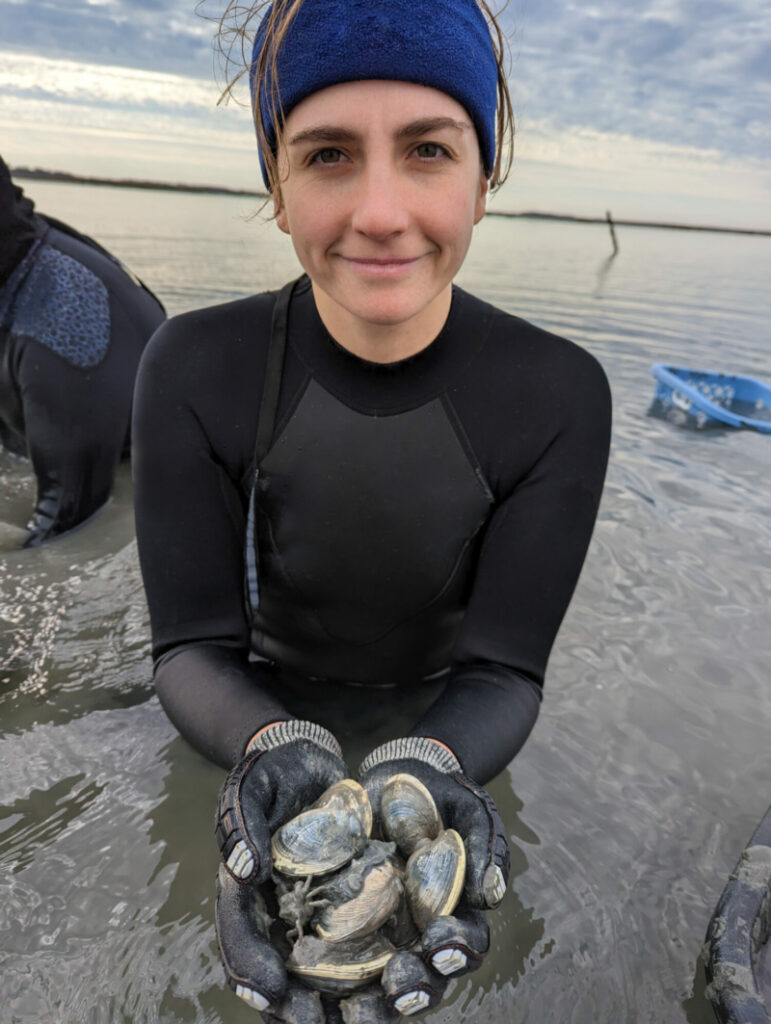 Sydney Williams, a fourth-year Ph.D. student of environmental engineering at the University of Florida, has been awarded the Florida Sea Grant Aquaculture Communications Fellowship. The fellowship offers a current graduate student the opportunity to engage with the dynamic team of FSG extension agents to identify emerging issues in the expansion of aquaculture in Florida.
Sydney Williams, a fourth-year Ph.D. student of environmental engineering at the University of Florida, has been awarded the Florida Sea Grant Aquaculture Communications Fellowship. The fellowship offers a current graduate student the opportunity to engage with the dynamic team of FSG extension agents to identify emerging issues in the expansion of aquaculture in Florida.
In her role, Williams will focus on the communication that will streamline planning, policy, and permitting for the restoration of clam and seagrass aquaculture. Williams will meet with interagency representatives to facilitate discussions on overlapping priorities relevant to restoration aqauculture, and produce comprehensive documents that will guide the permitting process and regulatory framework.
“There is great momentum to start restoring seagrass with the help of clams. Clams are suspension feeders that remove particulate from the water, which may improve light availability for seagrass survival and growth. However, our scientific understanding of this co-restoration approach is still developing,” says Williams.
“We need to conduct pilot projects for proof of concept of this approach, which is where the permitting and the regulatory framework come in. Agriculturists, clam farmers, agencies, state and federal scientists, and the general public have been hitting barriers because the regulatory framework is not necessarily up to speed with the restoration initiatives.”
I was starting to see the intersection between growing shellfish for food and also using shellfish as a tool for ecological and coastal restoration more broadly.
Sydney Williams
 Williams has an extensive background in various fields of science, including restoration ecology and aquaculture. She received a Bachelor of Science in cellular biology from the University of Georgia, and before beginning her Ph.D., Williams worked for the Nature Conservancy Georgia chapter and the Department of Natural Resources, where her interest in bivalve and shellfish aquaculture catapulted.
Williams has an extensive background in various fields of science, including restoration ecology and aquaculture. She received a Bachelor of Science in cellular biology from the University of Georgia, and before beginning her Ph.D., Williams worked for the Nature Conservancy Georgia chapter and the Department of Natural Resources, where her interest in bivalve and shellfish aquaculture catapulted.
“I was starting to see the intersection between growing shellfish for food and also using shellfish as a tool for ecological and coastal restoration more broadly,” says Williams.
Williams’ admiration for aquaculture grew on a study abroad trip in Zanzibar, Tanzania where local women cultivated seaweed through an aquaculture co-operative, which would be processed for cosmetics.
“I thought it was awesome. I loved the idea of sustainability of seaweed aquaculture and the idea that it would support local economies, and local communities, while also contributing to a larger economy.”
Williams is working on her dissertation with Florida Sea Grant UF research affiliate Dr. Christina Angelini, focusing on the role of ribbed mussels in nutrient cycling and organic matter transport through salt marsh systems, and currently co-owns a clam farm off the coast of Sapelo Island, where she continues to expand her research and technical science skills in aquaculture.
Williams will start the 12-month fellowship on Jan. 1, 2024, under the mentorship of Florida Sea Grant Assistant Extension Scientist, Dr. Angela Collins.
“As momentum continues to build for restoration aquaculture in Florida, specifically within our estuarine and marine systems, solid communication between practitioners, researchers, and managers is imperative,” says Collins. “Sydney will play a critical role in bringing stakeholders together to consolidate existing science and assist in the dissemination of information that should streamline ongoing and future restoration aquaculture activities.”